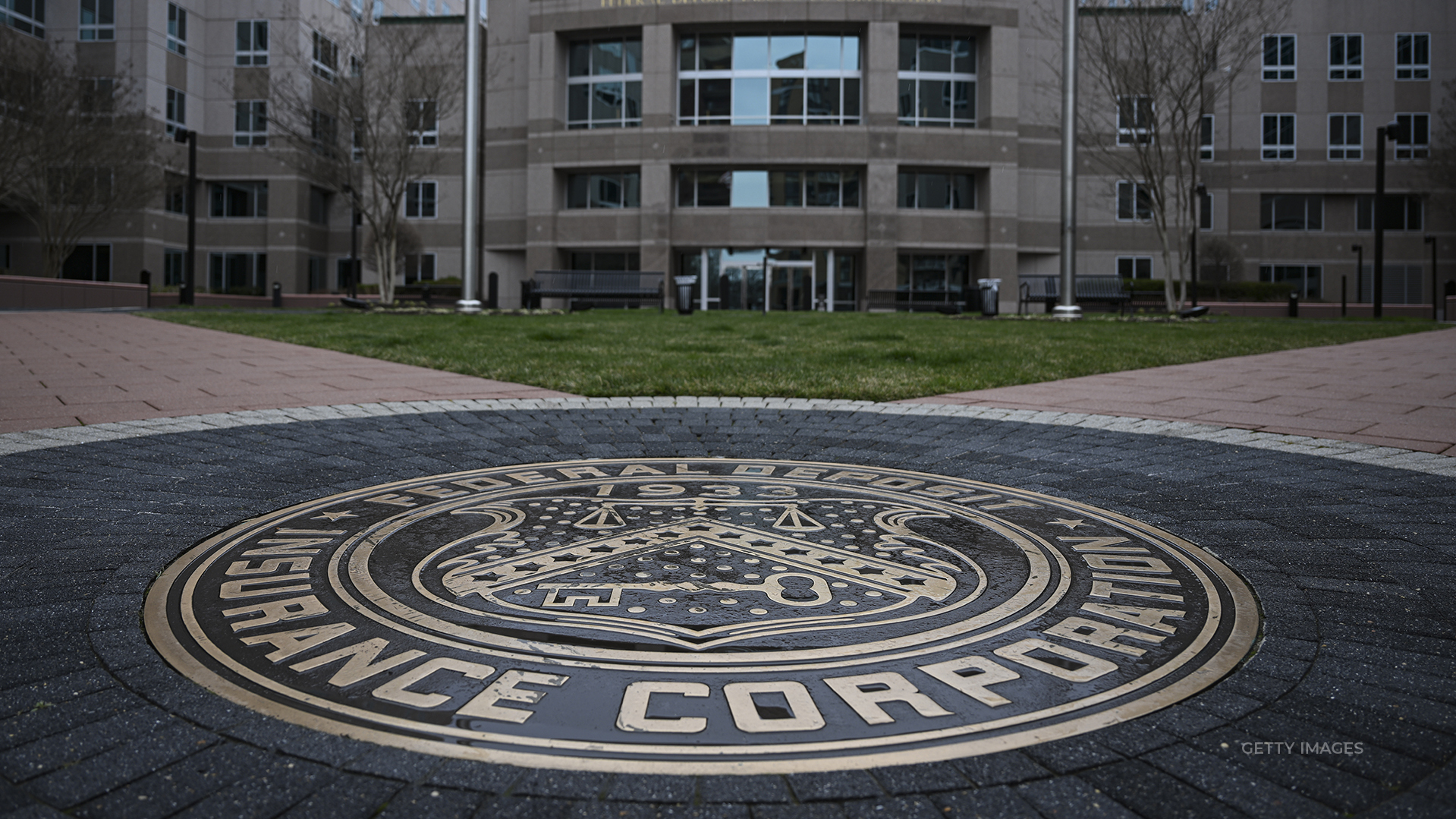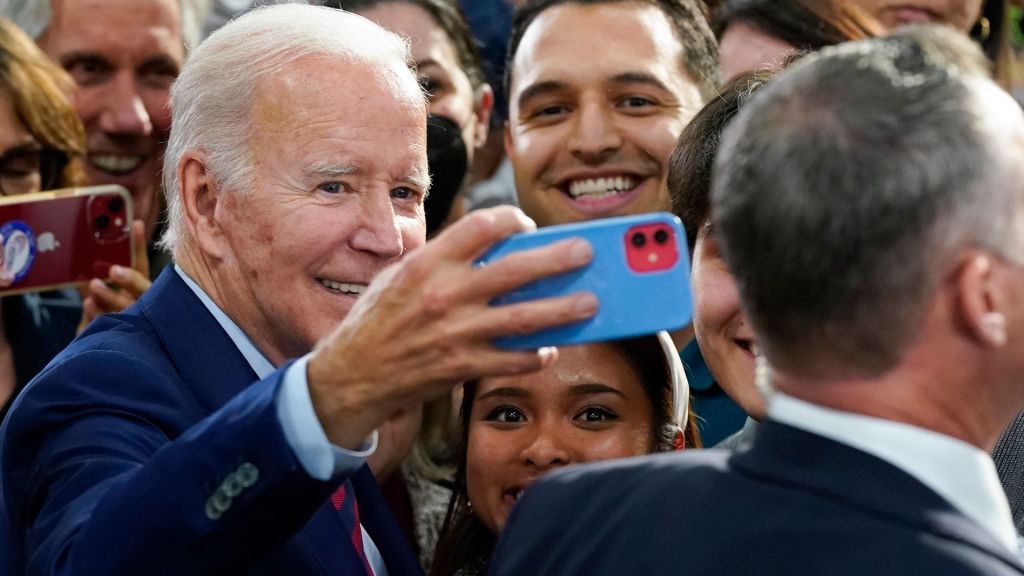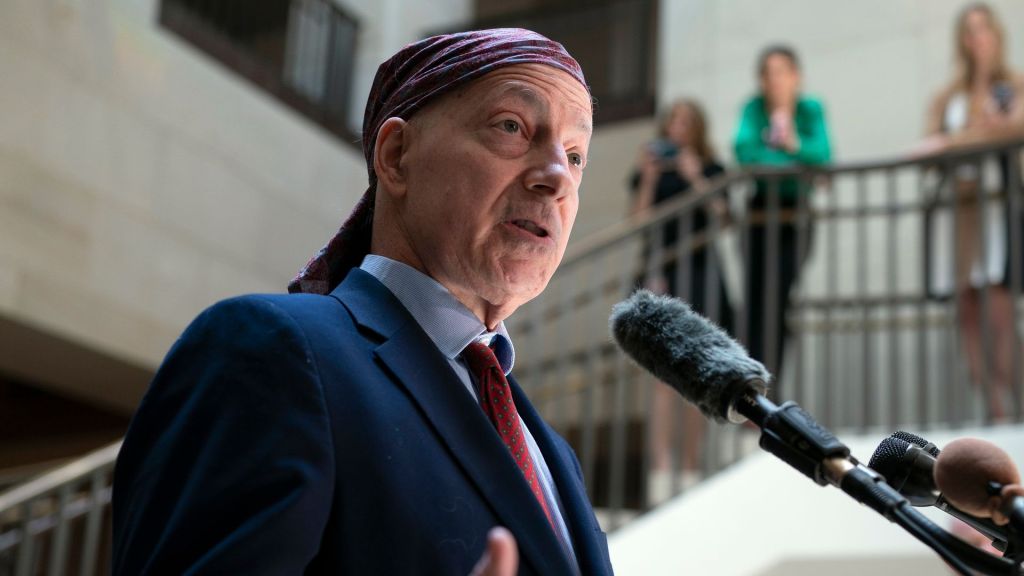
SIMONE DEL ROSARIO: Fearing contagious bank runs around the country, the government is trying to assure Americans that yes, your money is safe in the bank, and not just the ones that are too big to fail. Treasury Secretary Janet Yellen clarifying on Tuesday how far the government would go to save even smaller community banks.
TREASURY SECRETARY JANET YELLEN: Let me be clear, the government’s recent actions have demonstrated our resolute commitment to take the necessary steps to ensure that depositors’ savings and the banking system remains safe. Our intervention was necessary to protect the broader US banking system. And similar actions could be warranted if smaller institutions suffered deposit runs that pose the risk of contagion.
SIMONE DEL ROSARIO: Following the second and third largest bank failures in history, the FDIC took over both institutions, making all insured and uninsured deposits available. But the Deposit Insurance Fund isn’t some bottomless pit if this crisis gets worse. Joining me to weigh in on everything from raising the insurance limit to picking which banks to save is William Isaac, former chair of the FDIC. Bill, we really appreciate you being with us. You were FDIC chair during a pretty tumultuous time for banks in the ‘80s. Now that we’ve had a little over a week to digest the fallout of the SVB collapse and have seen the contagion spread even over to Europe with Credit Suisse, before we get into anything else, how do you characterize this moment and this confidence crisis in banks?
BILL ISAAC: Not unusual, prickly over the last 50 years that I’ve been in this industry. And I think that it’s so far, it’s not out of hand. There have been three notable failures. I think that the government responded to them promptly, with some strong actions. I don’t agree with all those actions, I think that maybe has upset the the confidence of the country a little bit, because I think they didn’t do the job the way I would have liked to have seen them do. But they have been resolute. They have said we’re not going to let the system come down. And I don’t have any doubt that they mean that and I don’t have any doubt they can stop it from from going much further.
SIMONE DEL ROSARIO: What specifically would you have done differently?
BILL ISAAC: Well, first of all, the government didn’t do a very good job of, of overseeing these institutions that got in trouble. The most notable one that went down is Silicon Valley Bank. And it was mismanaged by its management, its board of directors. They did not take proper care. They put way too many government bonds on the books, they own too many government bonds. They had a portfolio that was not diverse. And they put massive amounts of long term government bonds on the books. And other deposits were short term. So they had a horrible interest rate mismatch. That same kind of mismatch happened in 1979 When Paul Volcker was chairman of the Fed, and I was head of the FDIC. And First Pennsylvania did the same thing, put on way too many government bonds and had a mismatch book of interest rates. And it failed. Why the US Silicon Valley Bank needed to learn that lesson again, I don’t know, why the regulators let them put that much on the books, I don’t know. Silicon Valley Bank tripled in size in the previous two years prior to its failure, which is unheard of, for a bank to do that, or for a regulator to let them do it. So I think there was a lot of mistakes here. And then when the government decided to rescue, I would not have rescued all the depositors. They had a lot of really big depositors, sophisticated depositors on the books of that bank. I do not believe they should have given 100% guarantee to the uninsured depositors. That was a mistake. And I don’t know where this. I mean, there’s a lot of small banks that are saying why are they doing that for them and not us? And I think that’s a good question for them to be asking. If I’d been there, I probably would have recommended that that we protect everybody up to 250 and those over 250, we would give them something like 80 cents on the dollar, some some number, upfront, and and maybe a receivership certificate for anything above that, that they might have lost so that if we get if we collected more they could they could ultimately the large depositors could ultimately collect that initial amount. But in the meantime, they got 80% of their money, which should have not been a big problem in the economy.
SIMONE DEL ROSARIO: Do you buy the federal government’s arguments that the reason that they backstopped, both of these banks that failed is to try to stop the fear?
BILL ISAAC: No, I don’t, I don’t think it was necessary. And I think it probably caused more uncertainty and more fear, more consternation, than if they had said, well, we’ll take care of everybody up to 250 and owes over 250, we will give you 8080 cents on the dollar for right now. If we collect any more from the receivership, we’ll pay that later. That would have taken care of the problem. You had people in that bank with 10s of millions of dollars. They were not unsophisticated investors. They knew what they were doing. They knew what the risks were. And I don’t see why they should have been protected 100 cents on the dollar.
SIMONE DEL ROSARIO: We’re hearing now accusations that the federal government is picking those winners and losers who they would fully insure who they would let fail. You were Chair of the Board of Fifth Third Bancorp, which is a pretty big Midwestern bank, how important are regional and community banks to the infrastructure? And is there any worry here that we’re going to end up with fewer, merged, massive institutions not unlike what we’re seeing happening in Switzerland right now?
BILL ISAAC: Well, I’m extremely concerned that we not lose our regional banks and our community banks. They’re the lifeblood of our country and the small businesses and medium sized businesses of the country. It’s extremely important that we keep those banks in good condition and with all the support they need.
SIMONE DEL ROSARIO: Do you think that Yellen’s assurances today will do anything? She is saying that they would step up for smaller banks if there’s a fear of contagion?
BILL ISAAC: I don’t know if they’ll step up for smaller banks if there is fear of contagion. But I think what we need to do probably at this point, because they’ve so upset the applecart, I believe we probably ought to come up with some sort of a plan, like we had in 2008-2009 period, where we put some temporary deposit insurance protection in place for everyone, just for limited time, so we can get things calm down.
BILL ISAAC: Yeah, speaking of that, before the 2008 crisis, the FDIC only insured up to $100,000. And then as you mentioned that temporary increase to $250,000, which is now where it stands today, for each account, and we have an explainer on this on our website, straight arrow news.com, where we talk about how much you can get covered through FDIC insurance. Now, some lawmakers are saying that it could be time to raise that cap even more, take a listen.
SEN. ELIZABETH WARREN: I think that lifting the FDIC insurance cap is a good move. Now the question is, where’s the right number? Is it 2 million? Is it 5 million? Is it 10 million? Small businesses need to be able to count on getting their money to make payroll. And if we lift the cap, we are requiring or relying even more heavily on the regulators to do their jobs.
SIMONE DEL ROSARIO: That’s Senator Elizabeth Warren, what do you make of raising these caps more than $250,000?
BILL ISAAC: I think that would be a horrible idea and would destroy the free enterprise system that we have developed and in the banking system that supports it. I think there is an idea that I would propose that they consider and in fact, we had recommended that when I was chairman of the FDIC, it never got done. And then I left and I guess it got forgotten. But what we wanted to do was to put full insurance, full 100% deposit insurance on all business checking accounts that did not pay interest. The notion that small businesses need their checking account money available to them at all times, under almost all circumstances is absolutely correct. and it would be a huge benefit to our country or nation and the small business sector of the nation in particular, if we would protect non-interest bearing business checking account.
SIMONE DEL ROSARIO: Okay, so making it more specific rather than a blanket raise on that cap. I want to ask you, as we close this out, where’s your gauge on where we are in the turmoil we’re seeing in the banking industry? Is it stabilizing, like Yellen says, is it just the beginning? What do you think?
BILL ISAAC: Well, I think we, I hope we are stabilizing, I don’t see any reason why we shouldn’t. The banking system in general is in pretty good shape. With reasonable capital. I do believe that there are some institutions, we’ve just seen three of them that were out of control, were not properly being run, not properly being supervised. And so I think we may have some more of those around to deal with. I don’t know. But as far as the industry in general, the industry in general is just fine. There’s a tendency in these situations, to get panicky, I’ve been through it in the 80s a lot. So there’s a tendency for people to get panicky, but there’s no reason to, the government can stop what’s happening here. The question is, how are we going to do it? Are we going to do it safely and soundly? Are we going to come up with another bad idea or two?
SIMONE DEL ROSARIO: Bill Isaac, former chair of the FDIC current chair at Secura/Isaac group, thank you so much for your time and expertise today.
BILL ISAAC: My pleasure thanks to be with you.






